Colorado
How Barney Ford kept Colorado out of the Union until Black men could vote
Published
1 month agoon

Barney Ford’s Return to Breckenridge After Racist Expulsion
Barney Ford broke free from slavery in 1822 and made his way to Breckenridge with gold fever in 1860. When he staked a claim, white miners ran him off the land just for being Black.
But Ford wasn’t done. Back in Denver, he built a top restaurant after his barbershop burned down.
Then he took on an even bigger fight – blocking Colorado from becoming a state until Black men could vote. Years later, Ford came back to Breckenridge, struck it rich in mining, and built a grand Victorian home in 1882.
The house still stands today in Breckenridge Historic District, telling the story of a man who fought racism and won.

A slave boy learned to read against all odds
Born January 22, 1822 in Virginia, Barney Ford came into the world as someone else’s property. His mother Phoebe, a slave, got pregnant by the white plantation owner.
As a child, Ford moved to South Carolina where the slave population grew from 7% to over half. Though it was against the law, his mother secretly taught him to read and write, risking harsh punishment.
Another slave helped Ford improve his reading skills, which later helped him succeed in business.

The Mississippi River became his path to freedom
At 26, Ford grabbed his chance for freedom while working on a Mississippi riverboat docked in Illinois.
Knowing Illinois was a free state, he simply walked off the boat and traveled 300 miles to Chicago through the Underground Railroad. There he met Henry Wagoner, who ran Chicago’s Underground Railroad.
After tasting freedom, Ford picked his new last name and married Julia Lyoni, Wagoner’s sister-in-law, in 1849, starting his life as a free man.

Chicago barber shops served as perfect cover
Ford ran an Underground Railroad station in Chicago from 1849 to 1860, helping many slaves reach safety in Canada.
His barber shop gave him the perfect cover to gather information from white customers who had no idea what he was doing.
Working with Julia, Ford built a good business cutting hair, setting the stage for his future business ventures. Stories of gold in California and Colorado caught his attention, sparking dreams of western wealth.

Gold fever drew him to Colorado’s mountains
Ford joined the first gold seekers above Breckenridge in 1860 with four friends. They went up French Gulch, panning for gold in cold mountain streams.
Their hard work paid off when they found rich deposits and staked a mining claim on a hill south of town. Ford kept his growing pile of gold dust in a jar buried under the dirt floor of their cabin.
He wrote an excited letter to Julia saying he had finally struck it rich in Colorado.

White miners drove him away at gunpoint
Colorado law stopped Black men from owning homesteads or mining claims, forcing Ford to hire a white Denver lawyer to file his claim. Instead of helping, the lawyer cheated Ford out of his rights and mining property.
A group of racist white miners threatened Ford and his friends with violence, making them flee their claim.
They escaped over a hill that locals mockingly named with a racial slur, a name that stayed on maps for over 100 years.

Fire destroyed his first Denver business
After running to Denver, Ford opened a barbershop on Blake Street and earned enough to buy the building for $673 in March 1862.
He built a small restaurant behind the barbershop, starting what would become his hospitality empire.
Disaster hit during the Great Fire of April 1863, which burned down his barbershop along with most of Denver’s business district.
The fire started before dawn at Cherokee House saloon, with spring winds pushing flames through the wooden buildings.

People flocked to his fancy restaurant
Ford got a $9,000 loan from Kountze Brothers Bank at 25% interest to rebuild after the fire. He built a larger two-story brick building on Blake Street with a barbershop, restaurant, and bar.
The People’s Restaurant opened on August 16, 1863, offering rare treats like fresh oysters, lemons, and Havana cigars that few had in frontier Denver.
The restaurant made $250 daily (about $8,000 today), letting Ford pay back his entire high-interest loan in just 90 days.

His lobbying stopped Colorado from becoming a state
The Colorado Territorial Legislature changed laws in 1864 to stop Black men from voting. Ford and other Black leaders fought against Colorado statehood until voting rights included all men regardless of race.
He traveled to Washington D.C. to talk to Congress about blocking statehood, successfully delaying Colorado’s admission in 1864-1865.
Partly because of Ford’s civil rights work, the Senate rejected Colorado statehood in March 1866, giving time for more fair laws.

Ten years of fighting changed Colorado’s constitution
Congress banned territories from blocking voting based on race in 1867, prompting Ford to return from Chicago where he had moved for a while.
He kept up his lobbying, helping make sure Colorado’s 1875 constitution banned racial discrimination in voting.
When Colorado finally became a state on August 1, 1876, it included voting rights for all men as Ford had demanded.
His ten-year civil rights fight had turned Colorado from a place of discrimination to an inclusive state.

The man they chased away returned as a wealthy businessman
Ford proudly returned to Breckenridge in 1879 during the silver boom, opening Ford’s Restaurant and Chop House.
He put $4,000 in the Oro Mine in French Gulch in 1887, selling his share for a $20,000 profit just two years later.
Locals thought Ford had hidden treasure from the 1860s and often followed him as he walked through French Gulch for fun.
In 1882, he built a fancy five-room Victorian house on Washington Avenue, the best home in Breckenridge.

The former slave died one of Colorado’s richest men
Ford returned to Denver in 1890 as one of Colorado’s wealthiest citizens, managing extensive real estate investments throughout the state.
He served as the first African American on the Colorado federal grand jury and Board of Bank Examiners.
His income ranked 14th highest in Colorado, proving a former slave could achieve the American dream through perseverance and business acumen.
When Ford died on December 22, 1902, the state honored him with a stained-glass window in the Colorado State Capitol for his civil rights contributions.

Visiting Breckenridge Historic District, Colorado
You can explore Barney Ford’s incredible journey from escaped slave to wealthy entrepreneur at 111 East Washington Avenue in downtown Breckenridge.
The Victorian mansion is open Tuesday through Sunday 11 AM to 4 PM with free admission and $5 suggested donation.
Each room covers different periods of Ford’s life, from his escape from slavery to his business success after returning to rebuild his fortune in 1879.
The site recently became Colorado’s second National Underground Railroad Network location.
This article was created with AI assistance and human editing.
Read more from this brand:
John Ghost is a professional writer and SEO director. He graduated from Arizona State University with a BA in English (Writing, Rhetorics, and Literacies). As he prepares for graduate school to become an English professor, he writes weird fiction, plays his guitars, and enjoys spending time with his wife and daughters. He lives in the Valley of the Sun. Learn more about John on Muck Rack.


Enjoy the best of fall in Fargo with Oktoberfest and community celebrations

From giant gourds to parades, Ohio goes all out for pumpkin season

Salem celebrates fall with Halloween heritage and festive events

Experience autumn in Rhode Island with Newport’s sailing and harvest celebrations

Philly comes alive in mid October with arts festivals and seasonal celebrations

12 Reasons Why You Should Never Ever Move to Florida

Best national parks for a quiet September visit

In 1907, Congress forced Roosevelt to put God back on U.S. coins. Here’s why.

The radioactive secret White Sands kept from New Mexicans for 30 years

America’s most famous railroad photo erased 12,000 Chinese workers from history
Trending Posts

 Pennsylvania5 days ago
Pennsylvania5 days agoHere Are 12 Things People from Pennsylvania Do That Seem Insane To Everyone Else

 North Carolina6 days ago
North Carolina6 days agoHere Are 12 Things People from North Carolina Do That Seem Insane To Everyone Else
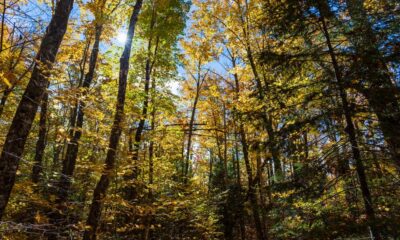
 Maine7 days ago
Maine7 days agoThe ruins of a town that time forgot are resting in this Maine state park
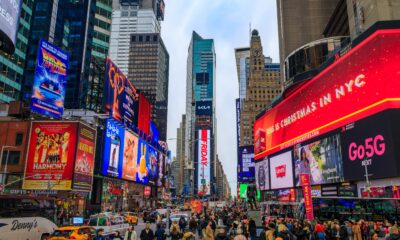
 New York6 days ago
New York6 days agoHere Are 12 Things People from New York Do That Seem Insane To Everyone Else
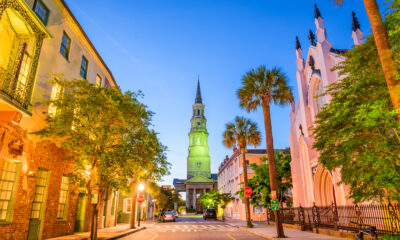
 South Carolina4 days ago
South Carolina4 days agoHere Are 12 Things People from South Carolina Do That Seem Insane To Everyone Else
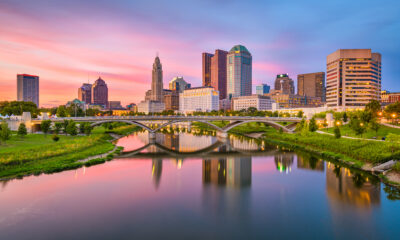
 Ohio6 days ago
Ohio6 days agoHere Are 12 Things People from Ohio Do That Seem Insane To Everyone Else
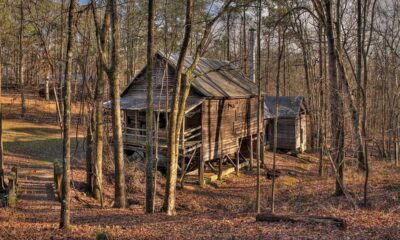
 Georgia7 days ago
Georgia7 days agoThis plantation’s slave quarters tell Georgia’s slowest freedom story

 New Hampshire7 days ago
New Hampshire7 days agoHere Are 12 Things People from New Hampshire Do That Seem Insane To Everyone Else
